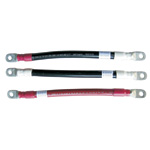Description
The MPPT VE.Can SmartSolar charger uses the latest and fastest technology to convert energy from a solar array into energy that optimally charges battery banks.
The SmartSolar charge controller will even recharge a severely depleted battery. It can operate with a battery voltage as low as 0 Volts, provided the cells are not permanently sulfated or otherwise damaged.
MPPT: Ultra Fast Maximum Power Point Tracking
The MPPT VE.Can SmartSolar charger connects to a PV array of 150 Volt Voc and will automatically detect and charge your 12, 24, or 48V battery bank with current of 70A.
The charge settings are fully programmable and can even be set up for different battery chemistries, like lead-acid, lithium and others.
Control Your Charger Remotely
The MPPT VE.Can SmartSolar charger can be remotely controlled and configured over Bluetooth via the VictronConnect App. This allows device set-up, management, and at-a-glance information, such as battery voltage and current, PV voltage and current, and historical data.
Daisy Chain Additional Units
The VE.Can SmartSolar charger is equipped with CAN bus ports. This allows for communication with additional VE.Can SmartSolar chargers. The additional units are simply “daisy chained” to each other with a single RJ45 cable between the individual units.
When connected to each other, all individual VE.Can SmartSolar chargers, will synchronize their charge stages. They can also send their data, via a single cable, to a GX monitoring device.
Remote Monitoring and Control
If the GX device is connected to the internet, the Victron Remote Management Portal (VRM) provides access to the full power of your solar charger(s).
For remote installations – even when there is no internet connection nearby – you may be able to monitor your MPPT by connecting the GlobalLink 520.
SmartSolar Control Display
The VE.Can SmartSolar charger is also equipped with a VE.Direct port like our other MPPT solar chargers. This port can be for single-unit monitoring or for streetlight control. The remote on/off connector can be externally controlled by a third-party device like a lithium battery. An optional plug-in LCD display/control provides live data, set-up, and management, straight from the face of the device.







![EG4 Hybrid Solar Mini-Split Kit | Energy Star Certified Air Conditioner Heat Pump AC/DC| 24000 BTU | SEER2 21 | + 3150 Watts of Solar PV [KIT-E0012]](https://www.montechng.com/wp-content/uploads/2024/11/eg4-hybrid-solar-mini-split-kit-energy-star-certified-air-conditioner-heat-300x450.png)







